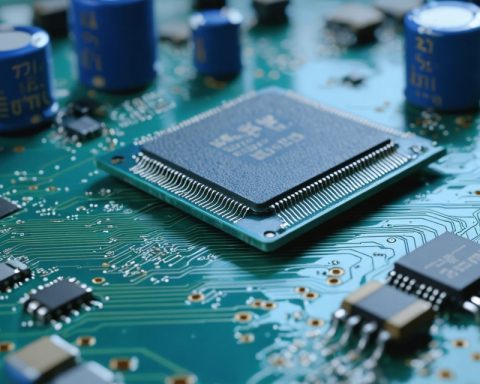In just over ten days, mobile networks in Vietnam will officially shut down 2G services on September 15, 2024, as part of a government initiative to encourage users to adopt newer technologies that offer enhanced features. Many individuals are opting for affordable 4G basic phones, reminiscent of the old “brick” models that only supported 2G. These devices continue to be popular, primarily due to their straightforward functionality, long battery life, and durability, appealing especially to older consumers who do not require the advanced features of smartphones.
Sales of these basic 4G phones have surged dramatically, with reports indicating a threefold increase in sales over recent weeks. Retailers are experiencing supply shortages as demand escalates in anticipation of the network transition. According to representatives from leading electronics retailers, they are working diligently with manufacturers to supply between 10,000 to 20,000 units early in September to cater to the rising consumer demand.
Interestingly, the trend is not limited to basic phones; some budget smartphones have also seen a growth rate of 30% to 50% compared to August. Experts believe this segment still holds significant potential for further growth as consumers navigate the shift away from the now-defunct 2G networks. In particular, older users and those in rural areas represent a substantial portion of the new 4G phone market, accounting for about 70% of purchases, illustrating the evolving landscape of mobile connectivity in Vietnam.
The Transition from 2G to 4G: Navigating the Digital Shift
As Vietnam prepares to phase out its 2G networks entirely on September 15, 2024, a noticeable shift toward 4G devices is taking place. This transition is not simply a matter of upgrading technology; it involves addressing various challenges and opportunities impacting consumers, businesses, and the broader economy.
Key Questions Raised by the Transition
1. What are the primary challenges faced by consumers during this transition?
Consumers, especially those accustomed to the simplicity of 2G devices, may face difficulties adapting to the features and functions of 4G devices. This challenge is compounded for older users and those in rural areas who may lack access to proper resources and support to facilitate this transition.
2. How is the shift towards 4G affecting the overall mobile economy in Vietnam?
The mobile economy is experiencing diversification as more users, including those in previously underserved rural regions, gain access to high-speed internet and mobile applications that can enhance their daily lives and business opportunities.
3. What are the potential implications for mobile service providers?
Service providers may need to invest heavily in expanding 4G coverage, particularly in remote areas. This transition also offers them the opportunity to introduce new, innovative services that leverage faster connectivity.
Advantages of Moving to 4G
– Enhanced Connectivity: 4G networks offer superior speed and reliability, enabling seamless access to the internet and mobile applications. This improvement benefits various sectors, especially education, commerce, and telemedicine.
– Broader Device Options: The market is flooded with a variety of affordable 4G devices, catering to diverse consumer needs. This proliferation allows users to find models that fit their lifestyle and budget.
– Economic Growth Opportunities: The adoption of 4G technology opens the door for new business models and economic opportunities, especially for startups and entrepreneurs who can leverage improved internet access to innovate.
Disadvantages and Challenges of the Shift
– Digital Divide: As the transition occurs, the existing digital divide may become more pronounced. Not everyone has access to the financial resources to upgrade their devices or data plans, especially in lower-income demographics.
– Potential Job Losses in Updating the Infrastructure: As mobile networks shift from 2G to 4G, jobs related to maintaining older technologies may become redundant. The workforce must adapt to new roles that are compatible with modern technologies.
– Environmental Concerns: The influx of new devices also raises concerns regarding electronic waste and the environmental impact, particularly if older devices are discarded rather than recycled.
Conclusion
The shift from 2G to 4G networks in Vietnam is a significant development that brings both opportunities and challenges. While consumers are responding positively by embracing affordable 4G devices, critical questions regarding support for disadvantaged groups, infrastructure investment, and environmental impacts remain. Continued attention to these issues will be essential as the country navigates this important transition.
For more information on mobile technology trends and market updates, visit TechCrunch and The Verge.


















